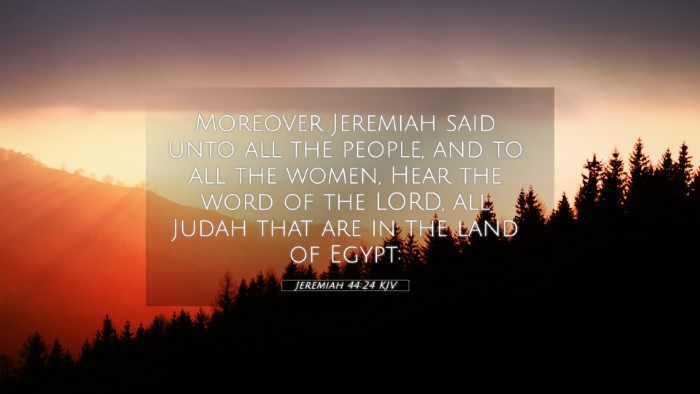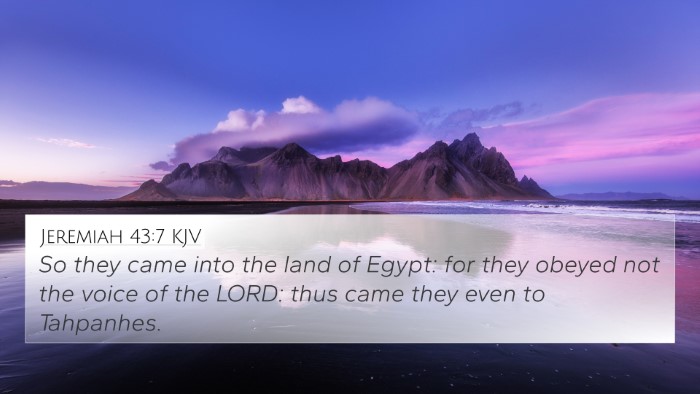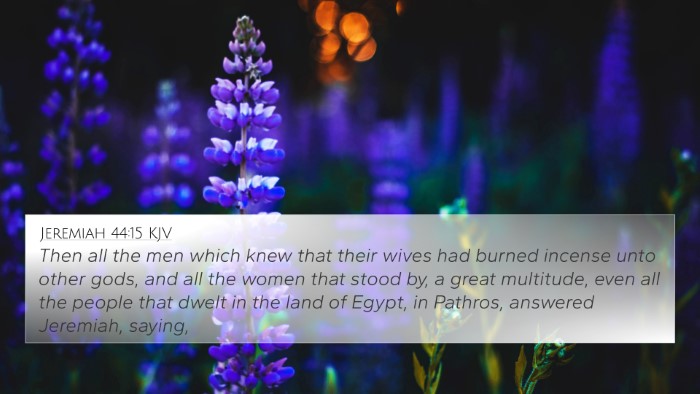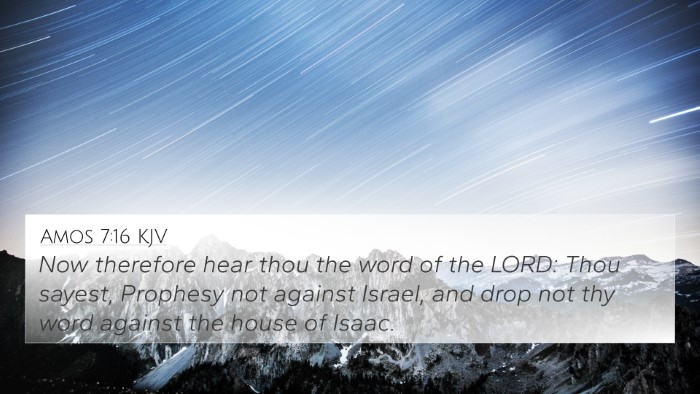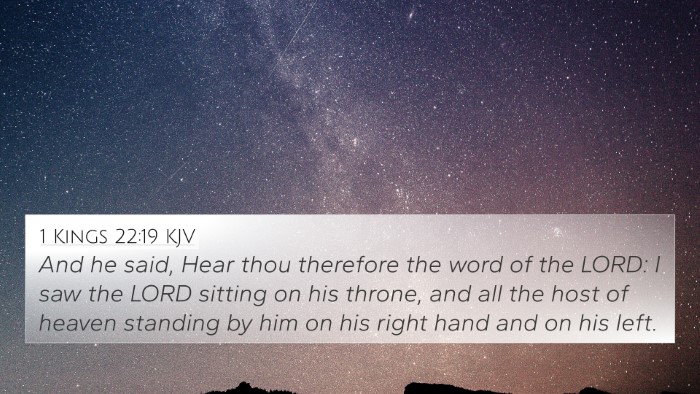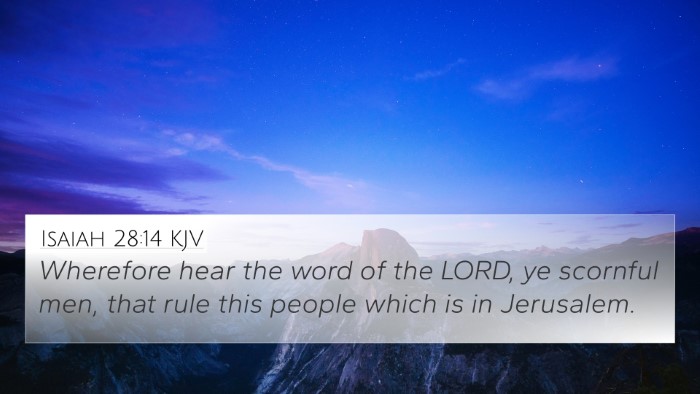Understanding Jeremiah 44:24
Jeremiah 44:24 states:
"Moreover, Jeremiah said unto all the people, and to all the women, Hear the word of the Lord, all Judah that are in the land of Egypt." (KJV)
This verse occurs in a context where the prophet Jeremiah addresses the Jewish people in Egypt, warning them against their idolatrous practices and urging them to return to the true worship of God.
Contextual Analysis
The backdrop of this verse is significant. The people of Judah, having fled to Egypt, were entangled in their former idolatrous ways, particularly worshipping the Queen of Heaven. Jeremiah’s warnings highlight God's displeasure towards these actions.
Key Insights from Public Domain Commentaries
-
Matthew Henry:
Henry emphasizes the notion of accountability and the consequences of ignoring divine warnings. He notes that the people are being admonished to heed the divine voice amidst their rebellion.
-
Albert Barnes:
Barnes provides a deeper understanding of Jeremiah’s role as a faithful messenger who is not only speaking to the men but also to the women who were influential in family religious practices. He underscores the communal aspect of sin and the collective responsibility to heed God’s word.
-
Adam Clarke:
Clarke expounds on the significance of 'the Queen of Heaven' worship, illustrating the cultural exchanges that led to spiritual syncretism among the exiles in Egypt. He stresses the dangers of adopting foreign religious practices that forsake the covenant with God.
Thematic Connections with Other Biblical Texts
Jeremiah 44:24 captures themes of rebellion, idolatry, and the call to repentance that resonate throughout the Scriptures. Here are some critical connections with other Bible verses:
- Exodus 20:3-5: The First Commandment unequivocally states God’s directive against having other gods, affirming the exclusive worship due to Him.
- Isaiah 30:1: This verse warns against those who take counsel but not of the Lord, reflecting the people’s reliance on human philosophies rather than divine wisdom.
- Jeremiah 7:18: Here, Jeremiah mentions the sacrifices made to the Queen of Heaven by families in Judah, which correlates with the idolatry occurring in Egypt.
- Ezekiel 20:8: This connects to the history of Israel's idolatry, where they rejected God’s statutes in favor of foreign gods, similarly to the situation in Egypt.
- Matthew 5:19: Jesus speaks of the importance of God's commandments, showing a commitment to God's law that echoes Jeremiah’s message.
- Romans 12:2: Paul warns against conforming to the pattern of this world, a situation the exiled Jews found themselves in as they adapted to Egyptian customs.
- 1 John 5:21: John warns believers to keep themselves from idols, direct counsel that echoes the warnings given by Jeremiah.
Application for Today
Jeremiah 44:24 serves as a poignant reminder of the importance of faithfulness to God. It brings to light the dangers of abandoning one's convictions under societal pressures. This verse encourages believers to remain steadfast in their worship and to seek God's guidance against contemporary challenges.
Tools for Bible Cross-Referencing
For those looking to study the connections between verses like Jeremiah 44:24 and others mentioned, here are some recommended tools:
- Bible Concordances that help locate verses and themes.
- Bible Cross-Reference Guides that provide thematic explorations.
- Cross-Reference Bible Study methods that facilitate in-depth explorations of scripture.
Concluding Thoughts
Understanding Jeremiah 44:24 within its context and its relevant connections throughout Scripture enlightens us on the nature of idolatry and the call to a pure devotion to God. As believers engage in scriptural cross-referencing, they gain a richer understanding of God’s will and the narrative woven throughout the Bible.
Additional Resources for Inter-Biblical Dialogue
For further study, consider examining the links between the Prophets and Apostolic teachings, as well as the comparative analysis of the Pauline epistles. All these avenues lead to a comprehensive understanding of biblical themes.

